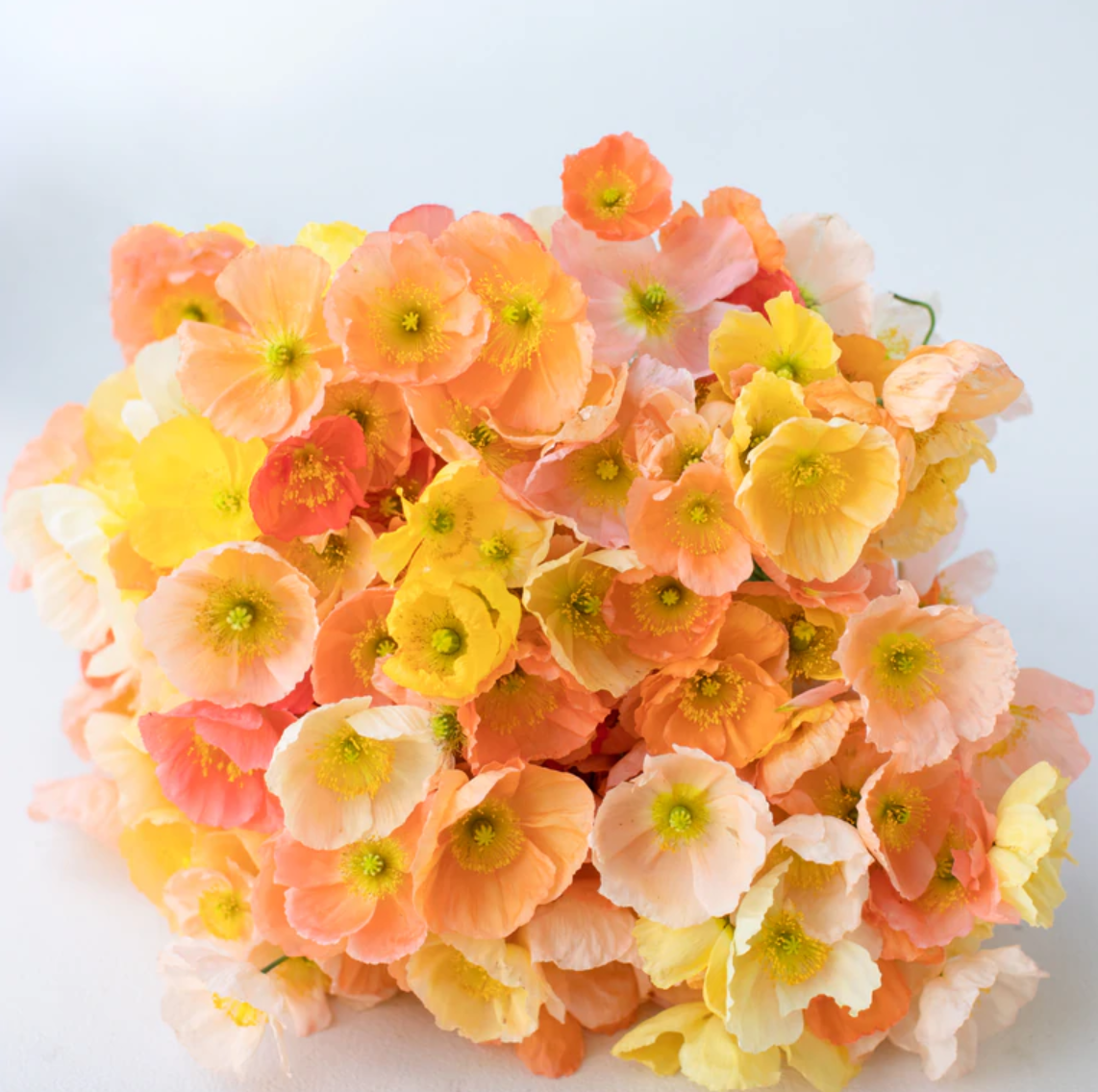Olive Seed Company
Poppy 'Giant Iceland Mix'
Poppy 'Giant Iceland Mix'
Couldn't load pickup availability
Gigantic Icelandic Poppy (Papaver nudicaule)
Brighten your garden with the joyous, vibrant blooms of the Gigantic Icelandic Poppy! Unlike many annual poppies, this Papaver nudicaule variety is a short-lived perennial, often grown as an annual, boasting exceptionally large, crinkled, cup-shaped flowers. You'll enjoy a cheerful mix of colours, from bright yellows and oranges to soft pinks and whites, all held on strong, wiry stems. These poppies are fantastic for attracting pollinators and are renowned for their incredible performance as cut flowers, lasting beautifully in a vase. Plant them for a continuous display from late spring through summer. While their main appeal is the stunning bloom, the small, intriguing seed pods can also add subtle texture to dried arrangements.
* Colour mix is not guaranteed*
DETAILS:
QTY: 300
TYPE: Annual; Self-sowing
SITE: Part Sun
DEPTH: Surface; Do not cover
GERMINATION: 14-21 days at 16-18°C
HEIGHT: 18 - 24'
MATURITY: 80 - 90 Days
SPACING: 9 - 12"
PINCH: No
HOW TO GROW:
Direct seed (recommended): Sow seeds directly outdoors in late fall or early spring when there is still a chance of frost or light snow. Poppies generally do not transplant well due to their delicate root systems. Gently rake the tiny seeds into the soil surface; do not bury them as they need light to germinate. Water gently after sowing.
Transplanting (alternative, use caution): If you choose to start seeds indoors, sow them into compostable pots (like peat or coir pots) 6-8 weeks before your last expected frost. This minimizes root disturbance during transplanting. The seeds are very small, so bottom watering is recommended until seedlings emerge to avoid washing them away. Harden off seedlings for 7-10 days before transplanting the entire biodegradable pot into the garden after all danger of frost is past.
Soil Preference: Poppies thrive in full sun and prefer well-drained soil. They are not particularly fussy about soil fertility and can tolerate average to poor soils. Avoid heavy, waterlogged soils, which can lead to root rot.
Watering: Keep the soil consistently moist during the germination period and while seedlings are establishing. Once mature, poppies are relatively drought-tolerant. Water them deeply but infrequently, allowing the soil to dry out slightly between waterings. Avoid overhead watering, which can damage delicate blooms.
Fertilizing: Poppies generally do not require much fertilizer. In fact, too much nitrogen can lead to lush foliage at the expense of blooms. If your soil is very poor, you can amend it with a small amount of compost before planting. No additional fertilizing is typically needed once plants are established.
Self-Seeding: Although most common poppies (e.g., Shirley Poppies, California Poppies) are annuals, they readily self-seed in favorable conditions, often giving the appearance of perennial growth in subsequent years.
Shipping & Returns
Shipping & Returns

-
Free Shipping
Free Shipping on all orders in Canada over $125.00

